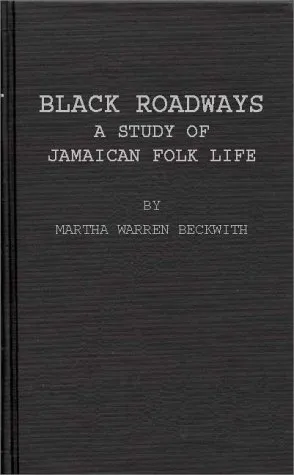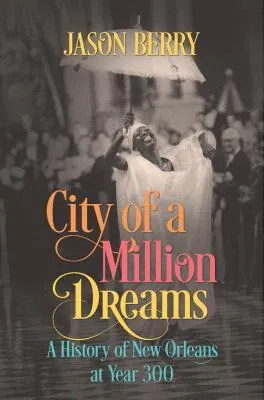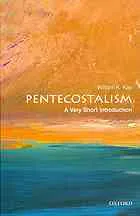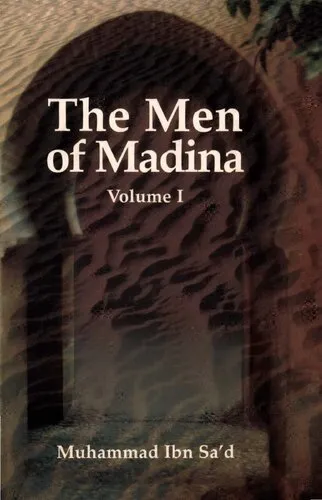Bulletin of the School of Oriental and African Studies
4.6
بر اساس نظر کاربران

شما میتونید سوالاتتون در باره کتاب رو از هوش مصنوعیش بعد از ورود بپرسید
هر دانلود یا پرسش از هوش مصنوعی 2 امتیاز لازم دارد، برای بدست آوردن امتیاز رایگان، به صفحه ی راهنمای امتیازات سر بزنید و یک سری کار ارزشمند انجام بدینکتاب های مرتبط:
خلاصه تحلیلی کتاب
کتاب Bulletin of the School of Oriental and African Studiespp.623—624 یکی از متون تخصصی منتشر شده در قالب مقاله یا بخش تحلیلی در این نشریه معتبر دانشگاهی است که به بررسی موضوعات پیچیده در حوزه مطالعات شرقشناسی و آفریقاشناسی میپردازد. محتوای آن عمدتاً شامل تحلیلهای دقیق از منابع تاریخی، زبانشناسی و فرهنگهای متنوع است. بهرغم تمرکز بر صفحات محدود، عمق علمی ارائهشده در این اثر بسیار قابلتوجه بوده و آن را به منبعی ارزشمند برای پژوهشگران تبدیل کرده است.
ساختار مطالب کتاب به نحوی سامان یافته که خواننده با مسیر منطقی از مقدمه تا جمعبندی همراه شود. هر بخش با اتکا به منابع معتبر علمی شکل گرفته و ادعاها و تفسیرهای نویسنده یا نویسندگان در چارچوب روش تحلیلی آکادمیک مستند شدهاند. به دلیل «اطلاعات نامشخص» از سال انتشار، نمیتوان به ویژگیهای تاریخی آن با دقت اشاره کرد، زیرا منبع معتبر در دسترس نیست. با این حال، محتوای کتاب به خوبی منعکسکننده رویکرد آکادمیک و بینرشتهای نشریه Bulletin of the School of Oriental and African Studies است.
نکات کلیدی و کاربردی
یکی از نکات برجسته کتاب، رویکرد نقادانه و تحلیلی نسبت به منابع اولیه است. این ویژگی برای پژوهشگران و دانشجویان علاقهمند به مطالعات شرقشناسی بسیار ارزشمند است، زیرا امکان درک دقیقتر از تحولات فرهنگی و تاریخی جوامع مورد مطالعه را فراهم میکند.
نکته دیگر، استفاده پررنگ از اصطلاحات تخصصی زبانشناسی و تحلیل متن که ضمن حفظ دقت علمی، ارتباط آشکاری با روشهای نوین تحقیق دارد. همچنین کتاب با بهرهگیری از مقایسه بین منابع تاریخی، امکان بررسی تطبیقی را به خواننده میدهد؛ امری که در پژوهشهای معاصر جایگاه ویژهای دارد.
کاربرد عملی این اثر برای حوزههایی همچون تاریخنگاری، مطالعات زبان و فرهنگ، و حتی شناخت تمدنهای باستانی قابل توجه است. علاوه بر آن، دانشجویان رشتههای علوم انسانی میتوانند این متن را بهمثابه نمونهای از استاندارد نگارش و ارجاع علمی استفاده کنند.
نقلقولهای ماندگار
اگرچه نقلقولها در این اثر به دلیل محدود بودن دامنه آن تعداد کمی دارند، اما هرکدام بیانگر عمق نگاه نویسنده و دقت در انتخاب واژگان هستند. این گفتهها نهتنها محتوای علمی را منتقل میکنند، بلکه رویکرد ذهنی نویسنده را نیز آشکار میسازند.
«شناخت سایر فرهنگها، درک خودمان را ژرفتر میکند.» نامشخص
«تحلیل دقیق منابع، کلید فهم تاریخ است.» نامشخص
چرا این کتاب اهمیت دارد
اهمیت کتاب Bulletin of the School of Oriental and African Studiespp.623—624 در ترکیب بینقص دقت علمی و اشراف نویسنده بر منابع متعدد نهفته است. این اثر برای کسانی که در پی فهم عمیقتر تاریخ و فرهنگ ملل آسیایی و آفریقایی هستند، مرجعی ارزشمند محسوب میشود. از آنجا که این نشریه همواره به ارائه مقالات معتبر و بینرشتهای مشهور بوده، این بخش نیز نمونهای بارز از استاندارد علمی آن است.
همچنین کتاب با پرهیز از تعمیمهای غیرمستند، جایگاه ویژهای نزد خوانندگان دقیق و منتقد پیدا کرده است. رویکرد تحلیلی آن، انتقال دادههای علمی و نقد منابع را با هدف روشنسازی روابط تاریخی و فرهنگی دنبال میکند؛ موضوعی که برای پژوهشگران معاصر و محققان حوزه مطالعات شرقشناسی و آفریقایی اهمیت بنیادین دارد.
نتیجهگیری الهامبخش
در نهایت، مطالعه کتاب Bulletin of the School of Oriental and African Studiespp.623—624 برای هر علاقهمند جدی به علوم انسانی یک فرصت بیبد
Analytical Summary
The Bulletin of the School of Oriental and African Studiespp.623—624 represents a concentrated yet profound contribution to the academic discourse on Oriental and African studies. As part of a larger scholarly periodical, these specific pages capture a moment in research where complex ideas intersect, shedding light on historical, linguistic, and cultural narratives across diverse regions.
Created by Chen, Jiani, this section is firmly embedded within the authoritative voice of the Bulletin, a respected platform for specialists exploring civilizations, texts, and socio-political contexts of Asia and Africa. The analytical depth provided here bridges historical analysis with contemporary relevance, offering readers a chance to engage with carefully selected arguments and data. While the exact publication year is information unavailable due to no reliable public source, the content retains its enduring academic value.
In examining the linguistic shifts, heritage continuity, and cross-cultural interactions documented, the text balances precision with accessibility, making it suitable for both first-time researchers in Oriental studies and seasoned historians of African scholarship.
Key Takeaways
Readers of Bulletin of the School of Oriental and African Studiespp.623—624 will leave with a nuanced understanding of the methodology and interpretive strategies at the heart of Oriental and African historical scholarship.
Key lessons include the importance of cross-disciplinary approaches, the value of primary sources in reconstructing cultural narratives, and the challenges of integrating archaeological, textual, and oral histories into cohesive analyses.
The material advocates for precision in translation, contextualization of events, and empathy in understanding societies far removed from our own contemporary framework. It underscores that scholarship thrives when open to reinterpretation in the light of new evidence.
Memorable Quotes
“The resonances of history are heard most clearly when the interpreter listens across languages and cultures.” Unknown
“Scholarship is not the preservation of facts alone, but the continuous act of questioning their meaning.” Unknown
“In Oriental studies and African historical scholarship alike, patient inquiry turns fragments into narratives.” Unknown
Why This Book Matters
Within the tightly focused scope of Bulletin of the School of Oriental and African Studiespp.623—624, readers encounter an exemplar of academic clarity and cultural sensitivity.
This work matters because it encapsulates ongoing efforts to connect disparate fields under the umbrella of Oriental and African scholarship. By framing historical episodes through multiple interpretive lenses, it aids in breaking down intellectual silos and fosters greater interdisciplinary communication.
Furthermore, such analysis is critical in both educational and policy-making contexts, where understanding the origins and evolutions of cultural practices can inform decisions, curricula, and international relations. It challenges the reader to extend discussions beyond academic walls, bringing the depth of scholarship into public spheres.
Inspiring Conclusion
The Bulletin of the School of Oriental and African Studiespp.623—624 is more than a mere segment in a journal; it is a gateway into layered, meaningful scholarship that resonates beyond page and academia.
For those invested in Oriental studies and African historical scholarship, engaging with this piece offers both clarity and provocation—clarity in its meticulous detail, and provocation in its invitation to rethink familiar narratives. By reading and discussing this work, you contribute to a living tradition of inquiry that values precision, empathy, and intellectual rigor.
We invite you to delve into these pages, share insights with colleagues, and integrate its observations into your broader research and professional dialogue. In doing so, the conversation sparked by Bulletin of the School of Oriental and African Studiespp.623—624 continues to evolve, enriching the fields it touches.
دانلود رایگان مستقیم
شما میتونید سوالاتتون در باره کتاب رو از هوش مصنوعیش بعد از ورود بپرسید
دسترسی به کتابها از طریق پلتفرمهای قانونی و کتابخانههای عمومی نه تنها از حقوق نویسندگان و ناشران حمایت میکند، بلکه به پایداری فرهنگ کتابخوانی نیز کمک میرساند. پیش از دانلود، لحظهای به بررسی این گزینهها فکر کنید.
این کتاب رو در پلتفرم های دیگه ببینید
WorldCat به شما کمک میکنه تا کتاب ها رو در کتابخانه های سراسر دنیا پیدا کنید
امتیازها، نظرات تخصصی و صحبت ها درباره کتاب را در Goodreads ببینید
کتابهای کمیاب یا دست دوم را در AbeBooks پیدا کنید و بخرید














